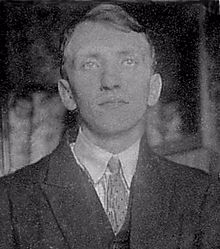Kirsten Collins
MA candidate, Divinity School
Reconstitution and Rupture: Religion After Religion and Maurice Blanchot
Tuesday, February 21, 4:00pm, Swift 201
In Religion After Religion, Steve Wasserstrom delves into the theories of religion developed by Gershom Scholem, Mircea Eliade, and Henri Corbin in order to show that at the core of religion lies not the coincidentia oppositorum, the mystical union of opposites, but the far more intractable domain of history. From this perspective, the atemporal insight claimed by the History of Religion constitutes a new tradition through the authoritative claim of revealing the old. This act is inherently destructive, as Wasserstrom points out: “The problem with a gnostic history of religions is that it imposes patterns on a past that were never (demonstrably) there in order to draw lessons for a present that is not (demonstrably) here,” (242). The three Historians of Religion failed “to stay within the limits of human knowledge, not to mention human dignity,” (238). Religion after religion, from this perspective, commits the indefensible act of pulling religion into the present by claiming to have discovered its eternal nature under the auspices and authority of history.
But is “religion after religion” necessarily destructive? Two world wars, anti-colonial mobilization, and the Holocaust precipitated a sudden desacralization of the Western Canon which might as well have been the death of God for Europe’s intellectuals. While Scholem, Eliade and Corbin reconstructed absolute authority through a mystical tradition unifying history, some contemporaries in Paris theorized religion after religion as a preservation of rupture, most prominently Maurice Blanchot. In this paper I propose to examine how Blanchot’s comments on Judaism in the poetry of Edmond Jabès, within the context of his general theory of literature, imply an idea of religion after religion that ruptures authority rather than reconstituting it. Through a reading of three Blanchot’s essays––“Literature and the Right to Death,” “The Indestructible” and “The Book of Questions”––I would like to posit the idea of “religion after religion” as central to his understanding of the connection between literature and history, and thus of a particularly human relation to truth.
Refreshments will be served.
The Workshop on the Philosophy of Religions is committed to maintaining itself as a fully accessible and inclusive workshop. Please contact Workshop Coordinator Matthew Peterson (mjpeterson@uchicago.edu) in order to make any arrangements necessary to facilitate your participation in workshop events.

